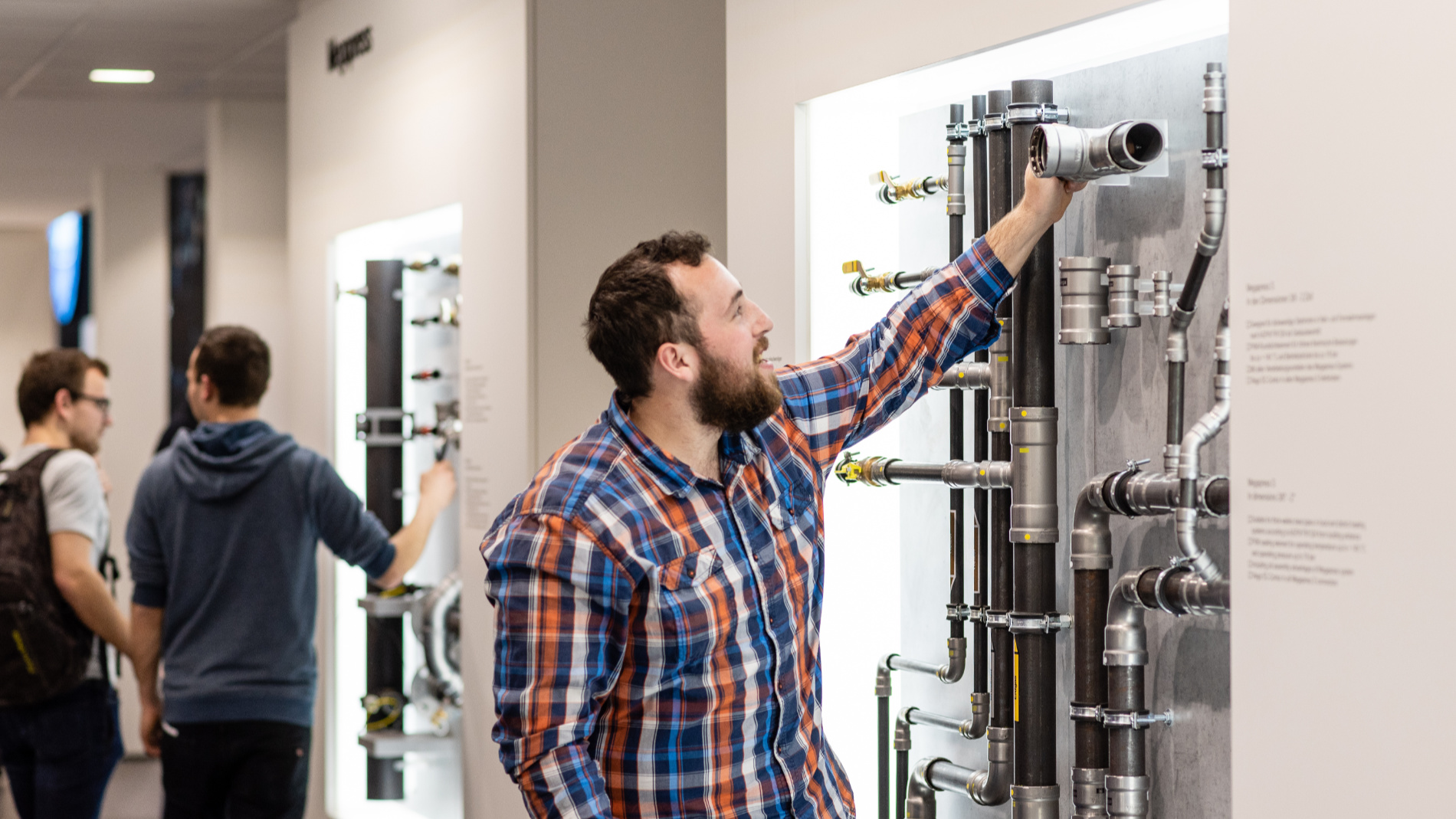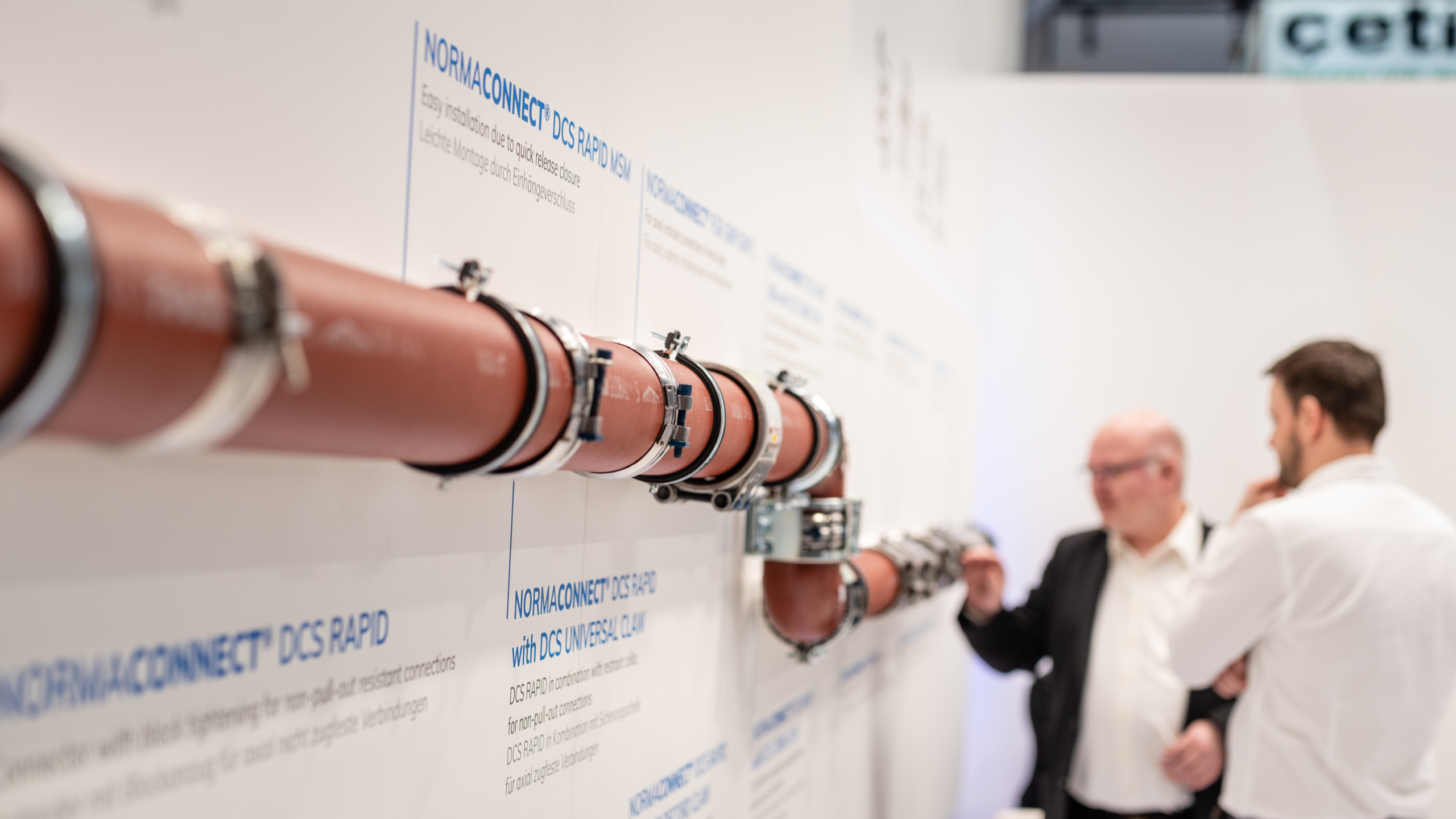Water consumption reduction made easy

Saving water: given the increasing scarcity of water, this subject is of growing concern to countless sectors, from the skilled trades and commerce to healthcare. Thus, it is important to reduce drinking water consumption by using modern components, well-thought-out installations and intelligent water management. Another approach is to use process and rainwater to ensure sustainable water cycles. Instead of relying on centralised water treatment plants, smaller, locally installed systems are becoming more important. Visitors to the ISH trade fair can look forward to the latest developments in water-bearing systems for process and rainwater utilisation.
Water-saving systems and components
Water-saving taps, shower heads and toilets reduce water consumption exactly where it occurs – with no loss of comfort or hygiene. For example, modern dual-flush toilets distinguish between small and large amounts of water, thereby halving the amount of drinking water used for flushing in some cases. Equipped with IoT sensors, innovative taps and fittings automatically adjust the flow of water to requirements.
Process-water utilisation: digitalisation and advanced filtration
Process-water utilisation involves treating process water or raw water to make it suitable for a variety of applications. For commercial and industrial purposes, treated wastewater can be used for cooling or for watering green spaces. In private households, process water is used for sanitary installations or, in this case, too, for watering the garden.
Modern process-water utilisation systems are relying more and more on intelligent water management, which involves monitoring and optimising water consumption in real time (smart metering). This makes it possible to use well water or treated process water even more efficiently in bathrooms, kitchens and other sanitary facilities. Moreover, modern process-water utilisation systems offer preventive maintenance functions (predictive maintenance) that detect and repair leaks at an early stage.
Progress has been made with respect to the process-water filtration with nanotechnology-based filters being able to remove even the smallest impurities and microparticles from process water. In addition, biological filtration is gaining in popularity as an environmentally friendly and low-maintenance option.
Rainwater utilisation: technological advances and installation
Rainwater harvesting has come a long way over recent years. Systems that combine guttering, downpipes, filters and storage tanks provide a sustainable way of collecting, storing and using rainwater. The rainwater thus harvested can be used for flushing toilets, washing machines or garden irrigation.
The latest technologies include advanced rainwater filters that ensure a high level of hygiene and quality. These filters are easy to maintain and guarantee a continuous supply of clean rainwater. Another highlight is the introduction of siphon systems that, thanks to the vacuum principle, are particularly efficient at channelling rainwater. Such systems are ideal for use in urban areas.
Grey water utilisation: making efficient use of process water
Greywater, i.e., water from showers, washbasins or washing machines, can be used for flushing toilets or watering gardens. Modern greywater treatment solutions are compact and easy to integrate into existing water systems, making them particularly attractive for commercial applications.
Filter systems are used to rid greywater of impurities, making it suitable for non-potable uses. Processes such as UV disinfection and membrane filtration improve water quality to a level that meets the requirements of most applications. These innovations promote the responsible use of water resources in sanitary facilities at the same time as reducing the ecological footprint.
Recycling process and rainwater has a great potential for reducing drinking water consumption. And, by using modern systems and components, as well as careful installation planning, both commercial and private users can create sustainable water cycles.
